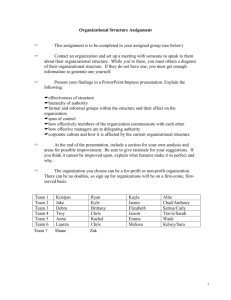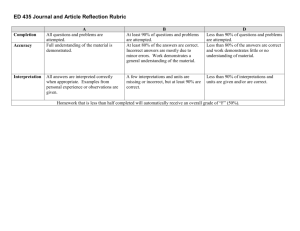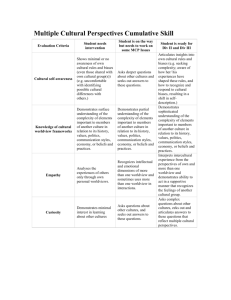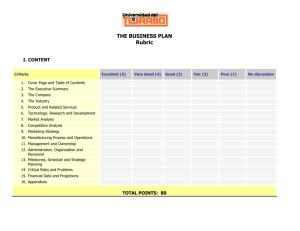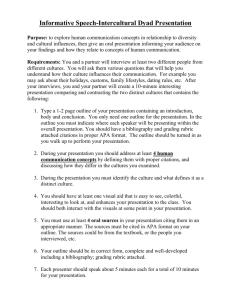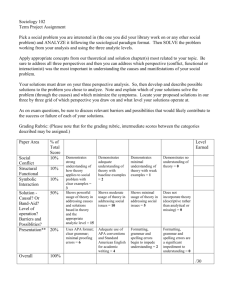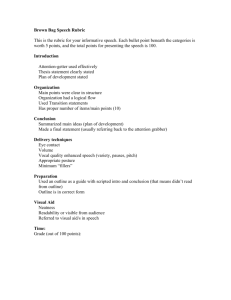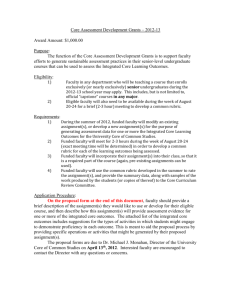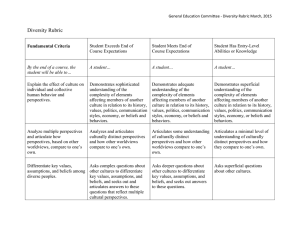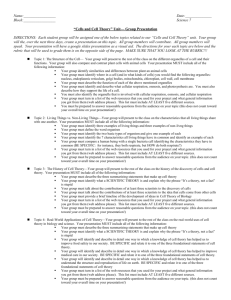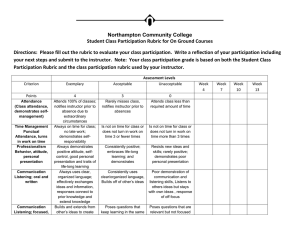ES Diversity Rubric - University of North Dakota
advertisement
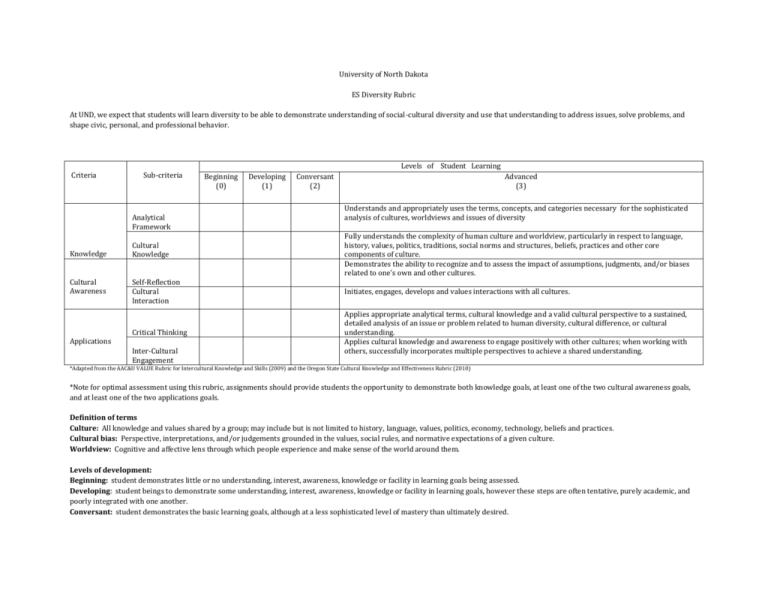
University of North Dakota ES Diversity Rubric At UND, we expect that students will learn diversity to be able to demonstrate understanding of social-cultural diversity and use that understanding to address issues, solve problems, and shape civic, personal, and professional behavior. Criteria Sub-criteria Analytical Framework Knowledge Cultural Awareness Applications Cultural Knowledge Self-Reflection Cultural Interaction Critical Thinking Inter-Cultural Engagement Levels of Student Learning Beginning (0) Developing (1) Conversant (2) Advanced (3) Understands and appropriately uses the terms, concepts, and categories necessary for the sophisticated analysis of cultures, worldviews and issues of diversity Fully understands the complexity of human culture and worldview, particularly in respect to language, history, values, politics, traditions, social norms and structures, beliefs, practices and other core components of culture. Demonstrates the ability to recognize and to assess the impact of assumptions, judgments, and/or biases related to one's own and other cultures. Initiates, engages, develops and values interactions with all cultures. Applies appropriate analytical terms, cultural knowledge and a valid cultural perspective to a sustained, detailed analysis of an issue or problem related to human diversity, cultural difference, or cultural understanding. Applies cultural knowledge and awareness to engage positively with other cultures; when working with others, successfully incorporates multiple perspectives to achieve a shared understanding. *Adapted from the AAC&U VALUE Rubric for Intercultural Knowledge and Skills (2009) and the Oregon State Cultural Knowledge and Effectiveness Rubric (2010) *Note for optimal assessment using this rubric, assignments should provide students the opportunity to demonstrate both knowledge goals, at least one of the two cultural awareness goals, and at least one of the two applications goals. Definition of terms Culture: All knowledge and values shared by a group; may include but is not limited to history, language, values, politics, economy, technology, beliefs and practices. Cultural bias: Perspective, interpretations, and/or judgements grounded in the values, social rules, and normative expectations of a given culture. Worldview: Cognitive and affective lens through which people experience and make sense of the world around them. Levels of development: Beginning: student demonstrates little or no understanding, interest, awareness, knowledge or facility in learning goals being assessed. Developing: student beings to demonstrate some understanding, interest, awareness, knowledge or facility in learning goals, however these steps are often tentative, purely academic, and poorly integrated with one another. Conversant: student demonstrates the basic learning goals, although at a less sophisticated level of mastery than ultimately desired. Advanced: student fully demonstrates mastery of learning goals as described.
